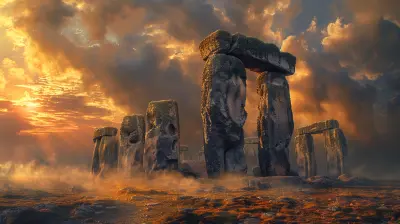Discover the Timeless Beauty of Ancient Ruins Around the World
30 October 2025
Have you ever wandered through the remnants of ancient civilizations and felt a deep connection to the past? There’s something truly magical about standing in places where history lives on, where every stone tells a story. Around the world, ancient ruins transport us back in time, giving us a glimpse of cultures that shaped humanity.
From mysterious temples hidden in jungles to grand cities now frozen in time, these ruins are a testament to human ingenuity and resilience. Whether you’re a history enthusiast or just someone who loves breathtaking sights, let’s embark on a journey to some of the most stunning ancient ruins ever discovered.
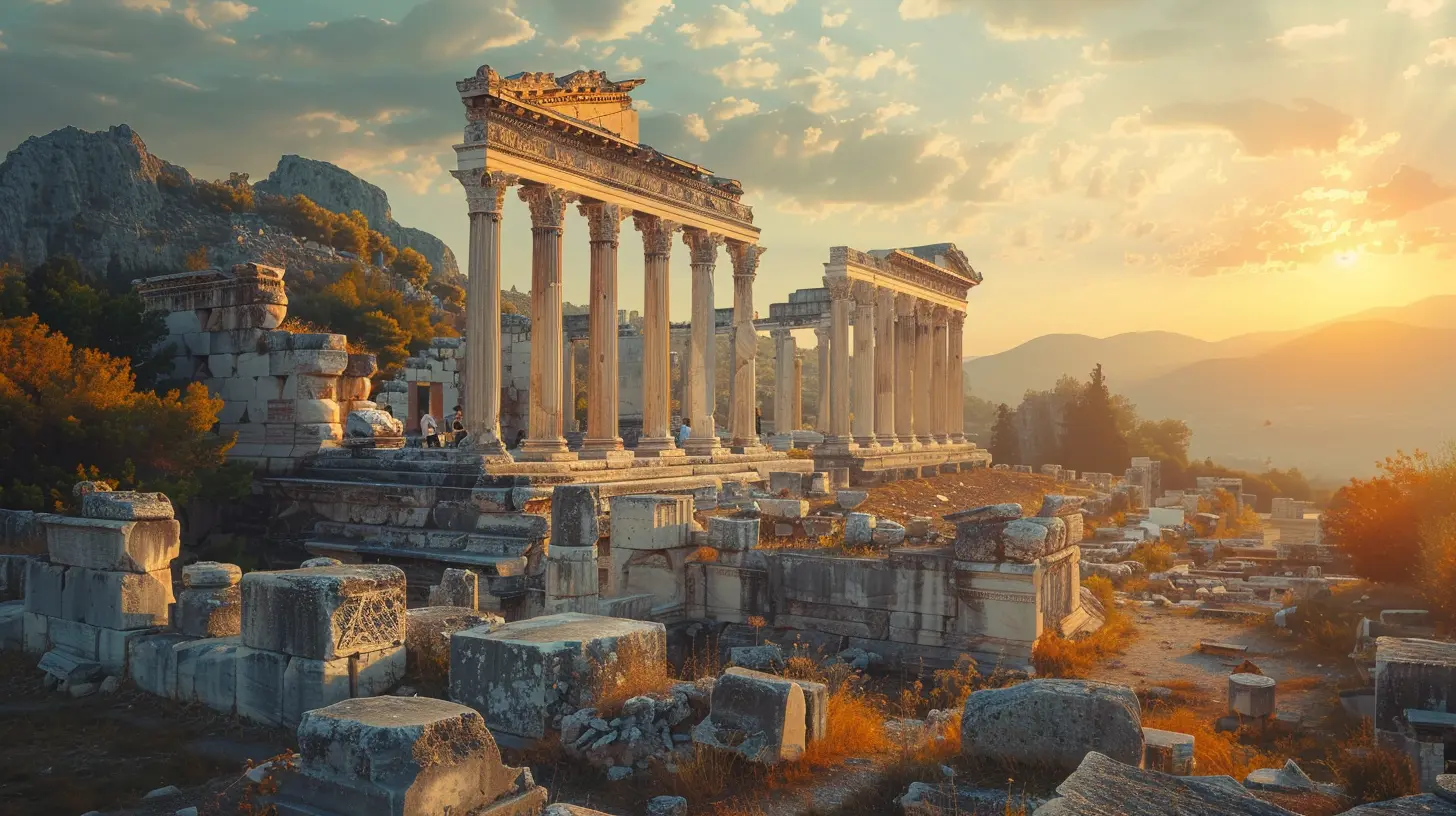
1. Machu Picchu, Peru – The Lost City of the Incas
Hidden high in the Andes Mountains, Machu Picchu is one of the most iconic ancient ruins in the world. This Incan citadel, built in the 15th century, mysteriously escaped destruction during the Spanish conquest, allowing it to be preserved almost intact.Why Visit?
- The breathtaking scenery of lush green mountains and deep valleys.- A fascinating glimpse into Incan architecture and engineering.
- The mystery surrounding its true purpose – was it a royal estate or a religious retreat?
A visit here feels like stepping into a mystical realm. Whether you hike the Inca Trail or take the scenic train route, the journey is as enchanting as the destination itself.
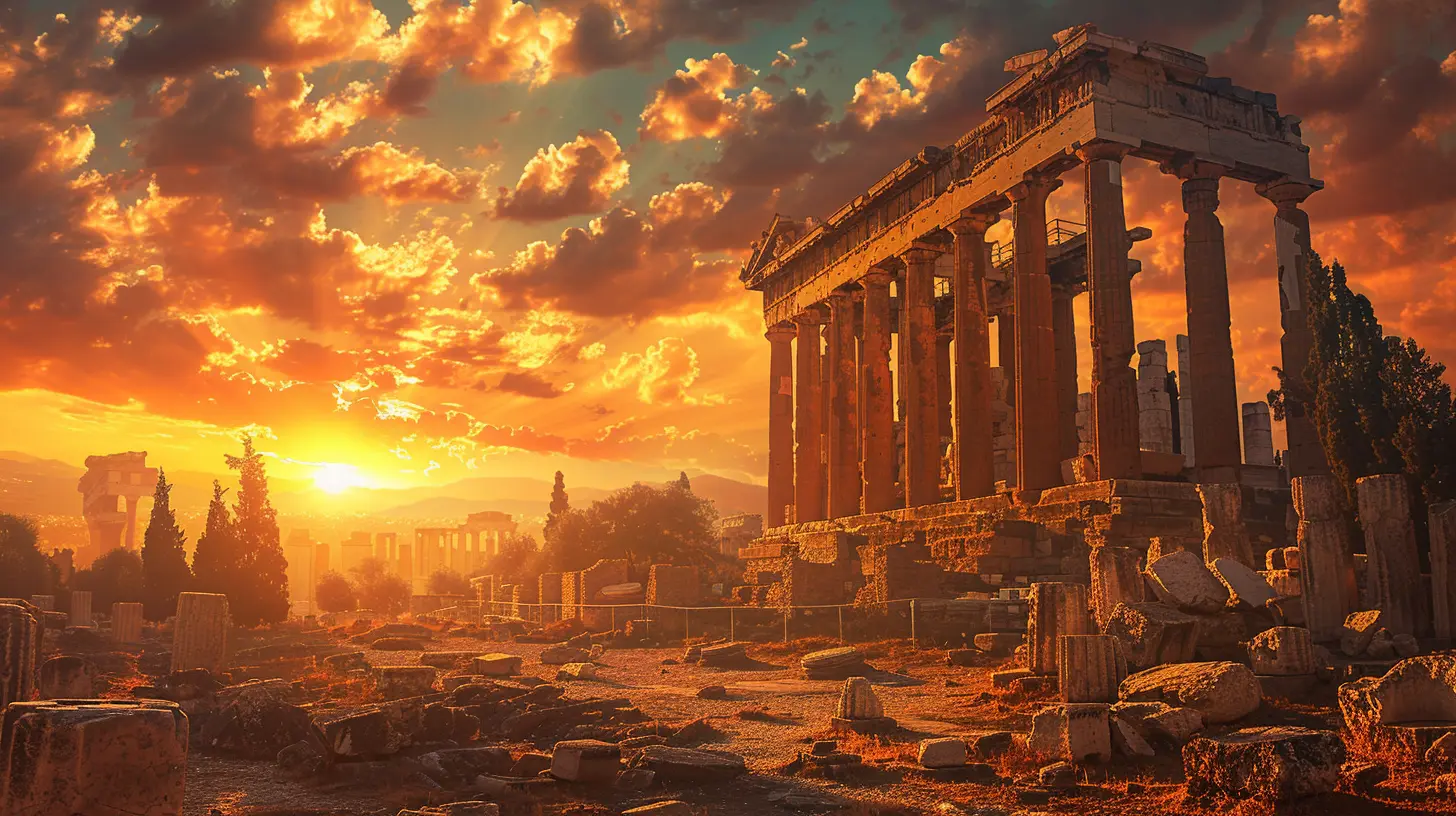
2. Petra, Jordan – The Rose-Red City
Carved into the red sandstone cliffs of southern Jordan, Petra is unlike anything you've ever seen. This ancient Nabatean city flourished in the 4th century BC as a major trade hub, but today, it's a mesmerizing archaeological wonder.What Makes Petra Special?
- The iconic Treasury (Al-Khazneh), which was featured in Indiana Jones and the Last Crusade.- A labyrinth of rock-cut tombs, temples, and an ancient amphitheater.
- The Siq, a narrow canyon that serves as a dramatic entrance to the city.
Walking through Petra feels like uncovering a hidden world lost in time. The way the sunlight plays off the red rock formations adds an almost surreal quality to the experience.
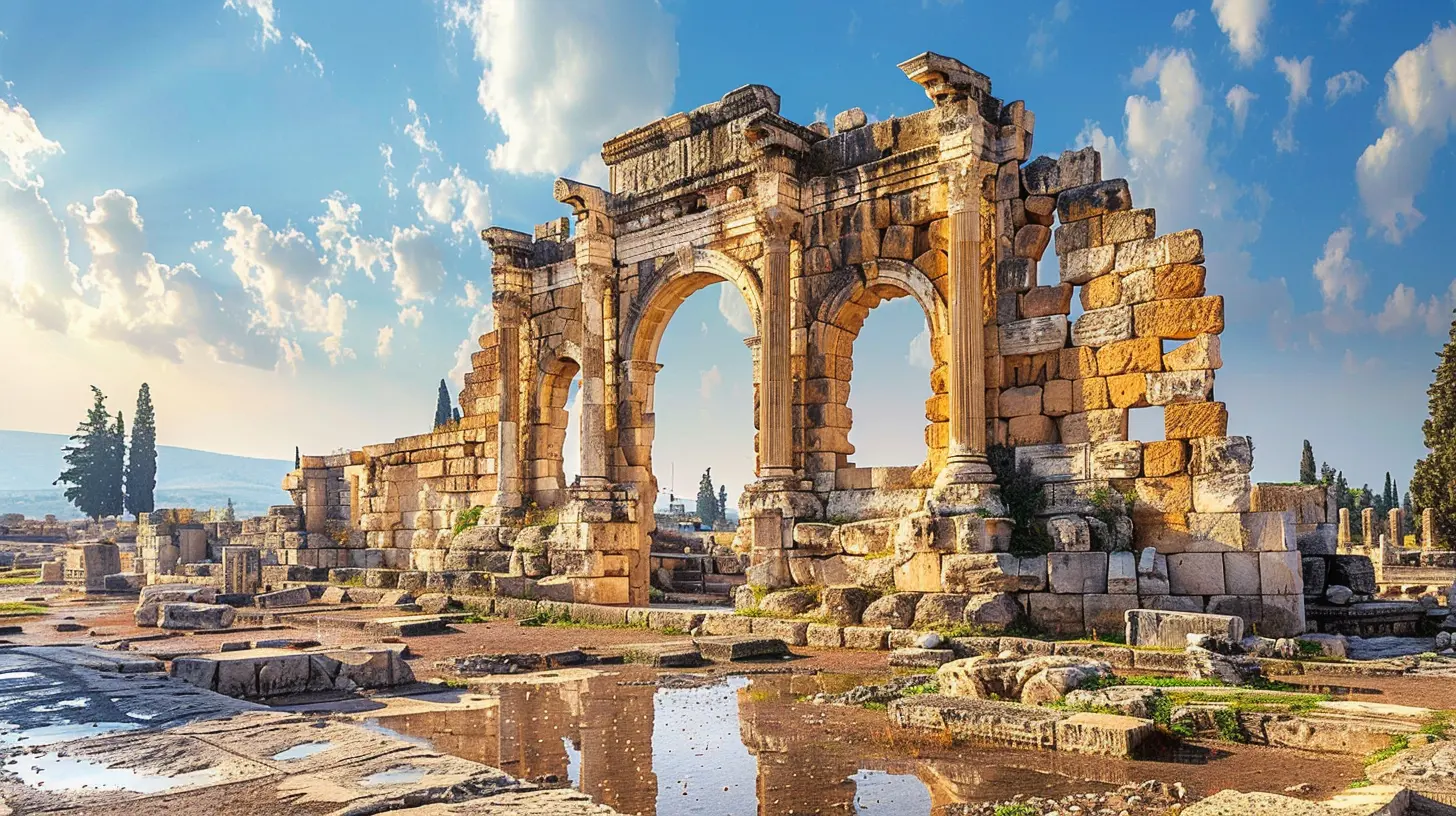
3. Angkor Wat, Cambodia – The Largest Religious Monument
Deep in the jungles of Cambodia, Angkor Wat stands as a grand reminder of the Khmer Empire’s glory days. Built in the 12th century, this massive temple complex stretches over 162 hectares, making it the largest religious monument on Earth.Why Angkor Wat is a Must-See
- Its intricate stone carvings tell mythical stories full of gods, demons, and legendary battles.- The temple's towers were designed to reflect Mount Meru, a sacred mountain in Hindu and Buddhist cosmology.
- Witnessing the sunrise over Angkor Wat is a once-in-a-lifetime experience.
While Angkor Wat is the main attraction, don’t forget the nearby Bayon Temple, famous for its massive stone faces, and Ta Prohm, where nature and history intertwine as roots engulf ancient structures.
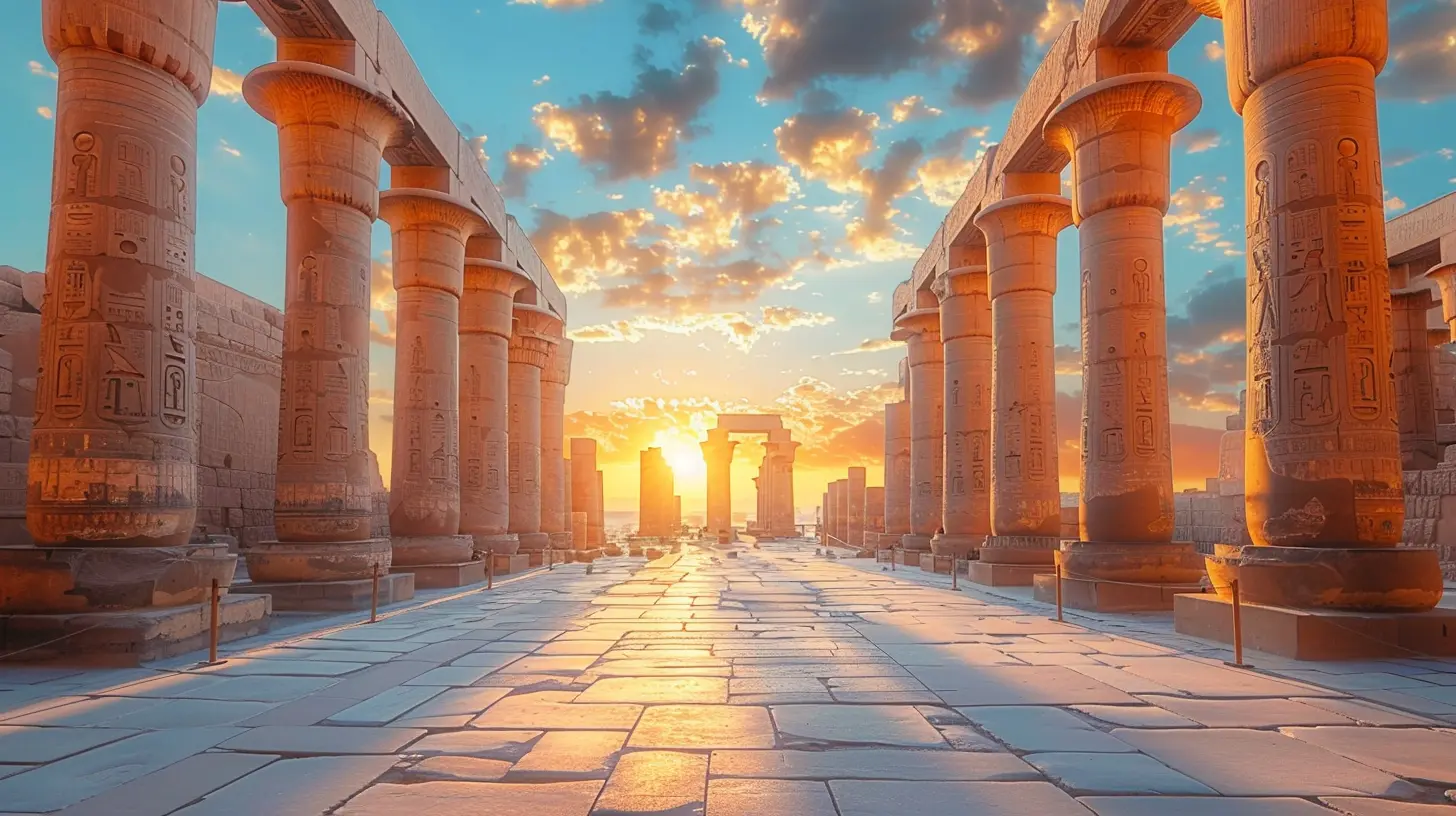
4. The Colosseum, Italy – A Glimpse into Ancient Roman Entertainment
No list of ancient ruins would be complete without the Colosseum in Rome. This grand amphitheater, completed in 80 AD, once hosted gladiator battles, chariot races, and even large-scale naval battles when the arena was flooded.Highlights of the Colosseum
- Its vast size—holding up to 50,000 spectators at its peak.- The underground tunnels where gladiators and wild animals were kept before battles.
- A symbol of Roman engineering brilliance, still standing despite earthquakes and stone looting.
Walking through the Colosseum, it’s easy to picture the roar of the crowd, the clash of swords, and the sheer spectacle that once unfolded in this mighty arena.
5. Chichén Itzá, Mexico – The Mayan Marvel
In the heart of the Yucatán Peninsula, Chichén Itzá was once a thriving Maya city and remains one of the New Seven Wonders of the World. Dating back to 600 AD, it was a hub of political, economic, and religious activity for the Maya civilization.Unforgettable Features
- El Castillo (Temple of Kukulcán), a pyramid that aligns perfectly with the sun during the equinox.- The Great Ball Court, where the Maya played a ritualistic game believed to have spiritual significance.
- The Cenote Sagrado, a massive sinkhole used for offerings and possibly human sacrifices.
The Mayan ingenuity in astronomy and architecture is evident throughout this site, making it one of the most fascinating ruins in the world.
6. The Great Wall of China – An Unbreakable Legacy
Stretching over 13,000 miles, the Great Wall of China is not just one of the longest structures ever built but also one filled with history and legend. Construction began as early as the 7th century BC, and various dynasties expanded and reinforced it over time.Why It’s More Than Just a Wall
- Built to protect Chinese states from invasions.- Offers breathtaking views of mountains and landscapes.
- Some sections feature steep, challenging hikes, making for a rewarding adventure.
Standing on the Great Wall, it's easy to imagine the countless soldiers who once guarded these fortifications against invaders.
7. The Pyramids of Giza, Egypt – The Last Wonder of the Ancient World
No ancient ruins list would be complete without the Pyramids of Giza. These masterpieces of engineering have stood the test of time for over 4,500 years, leaving historians and archaeologists in awe.Why They’re Still a Mystery
- Theories about how these massive structures were built still spark debate.- The Great Pyramid of Khufu held the record for the tallest human-made structure for over 3,800 years.
- The Sphinx, with its enigmatic smile, adds to the intrigue of the complex.
Visiting these pyramids is like stepping into an ancient riddle, one that continues to puzzle experts and impress visitors from around the globe.
8. Stonehenge, England – A Prehistoric Puzzle
Among the rolling plains of Wiltshire, England, stands Stonehenge, one of the most mysterious ancient ruins on Earth. Dating back around 5,000 years, this colossal arrangement of stones has baffled historians for centuries.What Makes Stonehenge Fascinating?
- Its exact purpose remains unknown—was it an astronomical observatory, a burial site, or a religious temple?- Some stones were transported from over 150 miles away, a remarkable feat for prehistoric people.
- It aligns perfectly with the solstices, suggesting advanced knowledge of astronomy.
Standing in its presence, you can’t help but wonder: what secrets does Stonehenge still keep?
Final Thoughts
Ancient ruins are more than just piles of old stones—they are windows into bygone eras, whispering stories of great civilizations, lost knowledge, and human ambition. Each site carries a unique charm, allowing us to walk in the footsteps of those who came before us.So, which of these breathtaking ruins would you love to visit first? Whether you prefer the jungle-clad temples of Cambodia or the desert sculptures of Petra, one thing is certain—you’ll leave with a newfound appreciation for the past.
all images in this post were generated using AI tools
Category:
Historical SitesAuthor:

Pierre McKinney
Discussion
rate this article
1 comments
Quinn Morales
Ancient ruins: a breathtaking journey awaits!
October 30, 2025 at 4:42 AM

Pierre McKinney
Thank you! Exploring ancient ruins truly reveals the incredible stories of our past.


